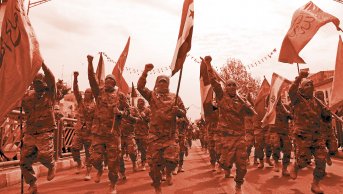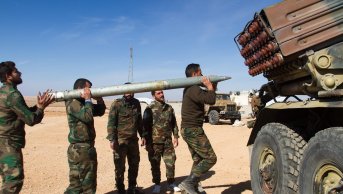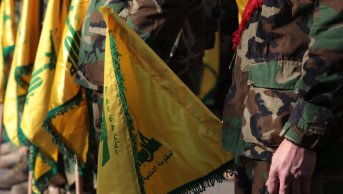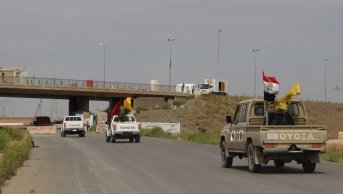Ahrar ash-Sham-Turkey Relation: Security and Future

Although Syrian opposition forces are classified in a general sense as under “al Qaeda” (Nusra Front) or “FSA”, it seems that the reality on the field is far from this distinction. Under the roof of Islamic Front, Islam Army and Ahrar ash-Sham have become leading opposition forces beyond the classical classification that do not fall under al Qaeda or FSA. Both groups are actively engaging in every region that has an opposition presence; while Islam Army is an effective force around Damascus, Ahrar ash-Sham is strong in northern parts of the country, especially in Aleppo and Idlib. We see that Ahrar ash-Sham, which has an estimated number 25 thousand militia and known as a local movement, is playing a leading role in opposition’s vital gains in northwest of the country, such as Idlib and Jisr al-Shughur. Although some media channels, which have a skeptical view of opposition forces, present opposition’s operations and gains in rural Idlib as an al-Qaeda victory due to Nusra Front’s participation, Ahrar ash-Sham’s role in these gains is decisive. Gains in Idlib and its rural parts appear as a victory of the Army of Conquest, which came to existence with the alliance of several opposition forces, and it is seen that Ahrar ash-Sham is the strongest element in terms of militia’s number. Ahrar ash-Sham’s leading position in the Army of Conquest made the group have more representatives than other Army of Conquest elements in the administration of Idlib city center. The group, which is effective in provinces near Turkish border such as Idlib and Aleppo, has positive relations with Turkey. The meeting took place in Turkey between Ahrar ash-Sham’s leader Abu Jaber and Jaysh of Islam’s leader Zahran Alloush and appearance of photos from meeting in opposition media is one of the developments of the close relations between Turkey and Ahrar ash-Sham.
Apart from Turkmen FSA elements in Aleppo and Latakia, Turkey has a warm relation with several groups such as mid-level FSA elements and Feilaq Sham, which is close to Ikhvan. Turkey is in need of strong allies in the region as a vital actor for the groups in the north due to its position. YPG, which is seen as PKK’s Syrian branch, is out of the potential ally candidates for Ankara due to having a different agenda than the rest of the opposition groups. Turkey is uncomfortable by YPG’s increasing influence in the border line and its cooperation with the Assad regime. Despite its efforts against ISIS and the regime, Nusra Front is also out of the list due to its al-Qaeda links. Considering these facts, Ahrar ash-Sham has become a natural ally of Turkey with its military strength and openness for dialogue. Although the group is known with its Salafist tone, it’s signing of the Revolutionary Covenant, which emphasizes “localness” and “non-extremist” nature of Syrian revolution (May 2014), could be seen as an outcome of Turkey’s impact on the group. So, what are the points that Turkey and Ahrar ash-Sham find a common ground?
Mutual Threats
Ahrar ash-Sham has been fighting against Assad regime almost in every region it is active and has played a significant role in opposition gains in northern Syria. In return of the gains, it suffered significantly after losing a great portion its leader cadre in September 2014. Despite this loss, the group disappointed expectations that it would perish; and has emerged as the biggest military opposition force in northern Syria with the support from its base and inclusion of smaller groups. As of today, Ahrar ash-Sham is not only fighting against Assad forces in every surface of the country, especially in northern Damascus, but also holding its ground against ISIS in Aleppo’s north. During the conflicts between opposition forces and ISIS in the first half of 2014, Ahrar ash-Sham, which engaged together with Nusra Front in the bloodiest clashes against ISIS, lost a significant number its commanders, fighters, and activists. In the articles and videos of the group, ISIS is portrayed as an enemy of the Syrian Revolution just like the Assad Regime and classified as “khawarij”. This shows firm stance of the group against ISIS. Furthermore, like many other opposition groups, Ahrar ash Sham is also uncomfortable by YPG’s policies and territorial control. In an interview given to the Turkish newspaper “Diriliş Postası”, group leader Abu Jaber said that YPG is exploiting Syrian Kurds’ victimization and he stated that Syria’s unity is among Ahrar ash-Sham’s red lines. Abu Jaber signaled a potential cooperation in terms of Syria’s unity with Ankara by saying that they have the same sensitivity with Turkey about Syria’s integrity.
Abu Jaber gave a similar signal about the potential military action by Turkey in a recent interview. In the same interview, Abu Jaber stated that a Turkish intervention in Syria is a decision taken after a consideration of potential future scenarios. He also added that Turkey’s security is already under threat and it is Turkey’s natural right to protect itself in a manner that Turkey seems appropriate. Furthermore, Abu Jaber mentioned that in such a situation they would be in dialogue with Turkish Government and they are strong enough to protect Turkey’s rights. Within this perspective, we see that Ankara and Ahrar ash-Sham have mutual understanding of threats, when we consider Ankara’s hesitations regarding Assad forces, ISIS, and border security against YPG.
Post-Assad Syria
Beyond its military strength, it seems that Ahrar ash-Sham is already an organization that has preparations for Syria’s future, considering signing of the Revolutionary Covenant and administrative structure established in Idlib. In this context, Abu Jaber’s comment that points out in a situation of Assad’s fall, Ahrar ash-Sham is making preparations for Syria’s future with a focus on projects is quite significant. We can say that Ahrar ash-Sham has the potential to be one of the actors to address in post-Assad Syria due to its ability to cooperate with other opposition groups and its leading role with its military capacity in the operations against ISIS. Ahrar Ash-Sham’s reordering of Bab al Hawa border gate into a civilian administration has the characteristics of a message to actors both inside and outside Syria. Actors, especially Turkey and Qatar, who state that the Baath regime is unsustainable and Assad must leave, are aware of the scenario that post-Assad Syria might turn into 1990s’ Afghanistan. For this reason, Islam Army in Damascus, FSA Southern Front in Daraa, and Ahrar ash-Sham in northern Syria have paramount importance for external actors with their military strength and their visions on Syria’s future without radical elements. Ahmet Davutoğlu’s statement that Aleppo-Turkey connection will not let to be cut down, in other words opposition forces will be supported against Assad forces and ISIS, shows how important the northern opposition forces are for Turkey. It seems that Turkey is in a position to continue its cooperation in a fast acceleration with the northern opposition forces, especially Turkmen FSA elements, in the context of mutual threats and future envisagement. For this reason, it seems highly likely that relations between Turkey and Ahrar ash-Sham as the strongest opposition group in the north will continue in the same route without losing any acceleration.










